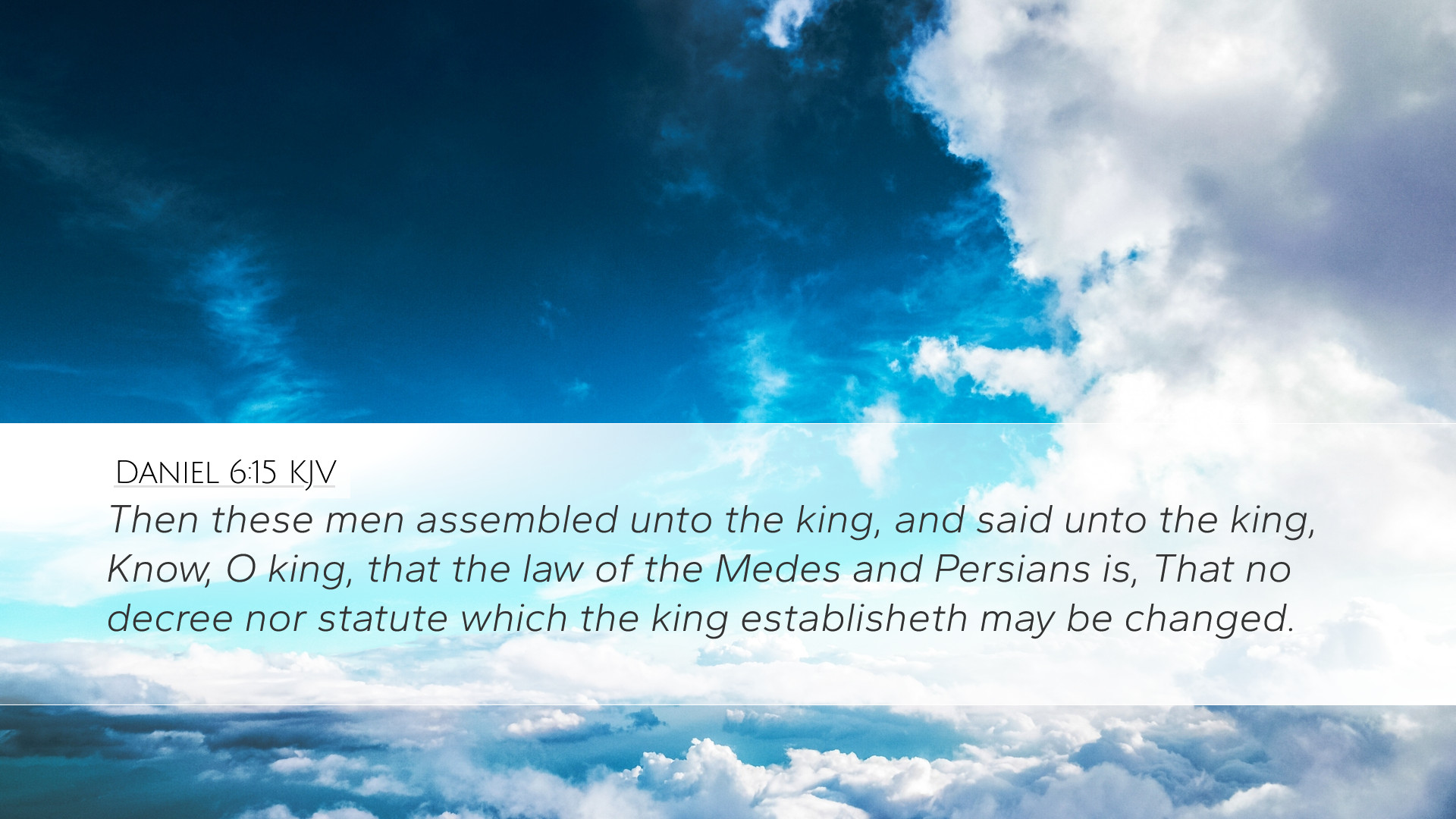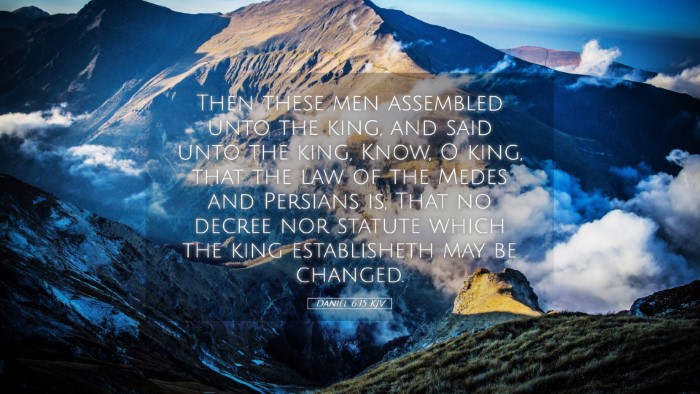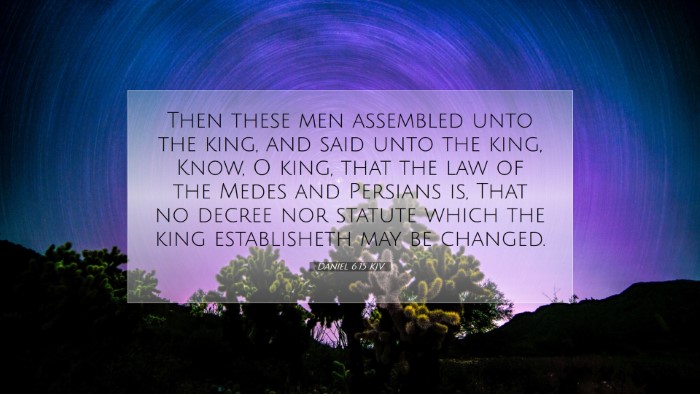Commentary on Daniel 6:15
Verse Context: Daniel 6:15 states, “Then these men assembled unto the king, and said unto the king, Know, O king, that the law of the Medes and Persians is, That no decree nor statute which the king establisheth may be changed.” This verse occurs in a pivotal moment in the Book of Daniel, illustrating the confluence of law, authority, and the fidelity of Daniel to his faith.
Historical and Political Context
Albert Barnes: Barnes emphasizes the political intrigue surrounding Daniel. He notes how Daniel’s elevated position in the kingdom incited jealousy among the other officials. This verse is critical as it reveals the conspirators attempting to leverage the king's established laws to eliminate Daniel, showcasing the interplay of human politics and divine providence.
Theological Implications
Matthew Henry: According to Henry, the situation highlights the tension between divine law and human law. He perceives the unwavering loyalty of Daniel as a testament to the faithfulness of God’s servants amidst persecution. The declaration of the irrevocability of the Medo-Persian decree serves to illustrate that while human laws may seem formidable, the sovereignty of God supersedes all worldly authority.
Legal Rigidity of the Medes and Persians
Adam Clarke: Clarke expounds on the legal nature of Persian governance. He points out that laws made by the Medes and Persians could not be changed, which effectively traps King Darius in a position where he fears for Daniel's life yet cannot alter the law without incurring severe consequences. This rigidity showcases the limitations of earthly power and foreshadows the divine intervention that is about to occur.
Character Study of King Darius
Matthew Henry: Henry offers insight into the character of King Darius, portraying him as a ruler caught between his affection for Daniel and the unyielding demand of his subjects. This scenario illustrates the complexities of leadership and the struggle between personal convictions and public duties.
The Role of Conspiracy
Albert Barnes: Barnes suggests that the conspirators’ actions reflect a broader theme of human opposition to divine purposes. The collusion against Daniel represents the age-old conflict between righteousness and wickedness, making this narrative all the more poignant for theologians addressing the moral dilemmas faced in leadership.
Faithfulness of Daniel
Matthew Henry: Henry concludes that Daniel's steadfastness serves as an exemplar for believers. In facing potential death, Daniel remains faithful to prayer despite knowing the consequences. This detail reveals the depth of his commitment and trust in God, emphasizing that the believer's primary allegiance is to God over any earthly authority.
Lessons for Contemporary Believers
- Unyielding Faith: Believers are encouraged to maintain their spiritual disciplines, like prayer, irrespective of societal pressures.
- Understanding Authority: The narrative prompts a dialogue about the nature of authority and obedience to God’s commandments versus human laws.
- Divine Sovereignty: The passage reassures that God is ultimately in control over seemingly insurmountable human laws and decrees.
Conclusion
Summary: The events leading up to Daniel 6:15 serve as a critical examination of faith under pressure, the complexities of leadership, and the certainties of God’s sovereignty over human affairs. While the conspirators believe they have ensnared Daniel through the unchangeability of the king's law, the reader is reminded of the greater narrative of divine rescue and the ultimate victory of truth and faithfulness, reinforcing a message of hope for all who navigate similar challenges in faith and moral conviction.


